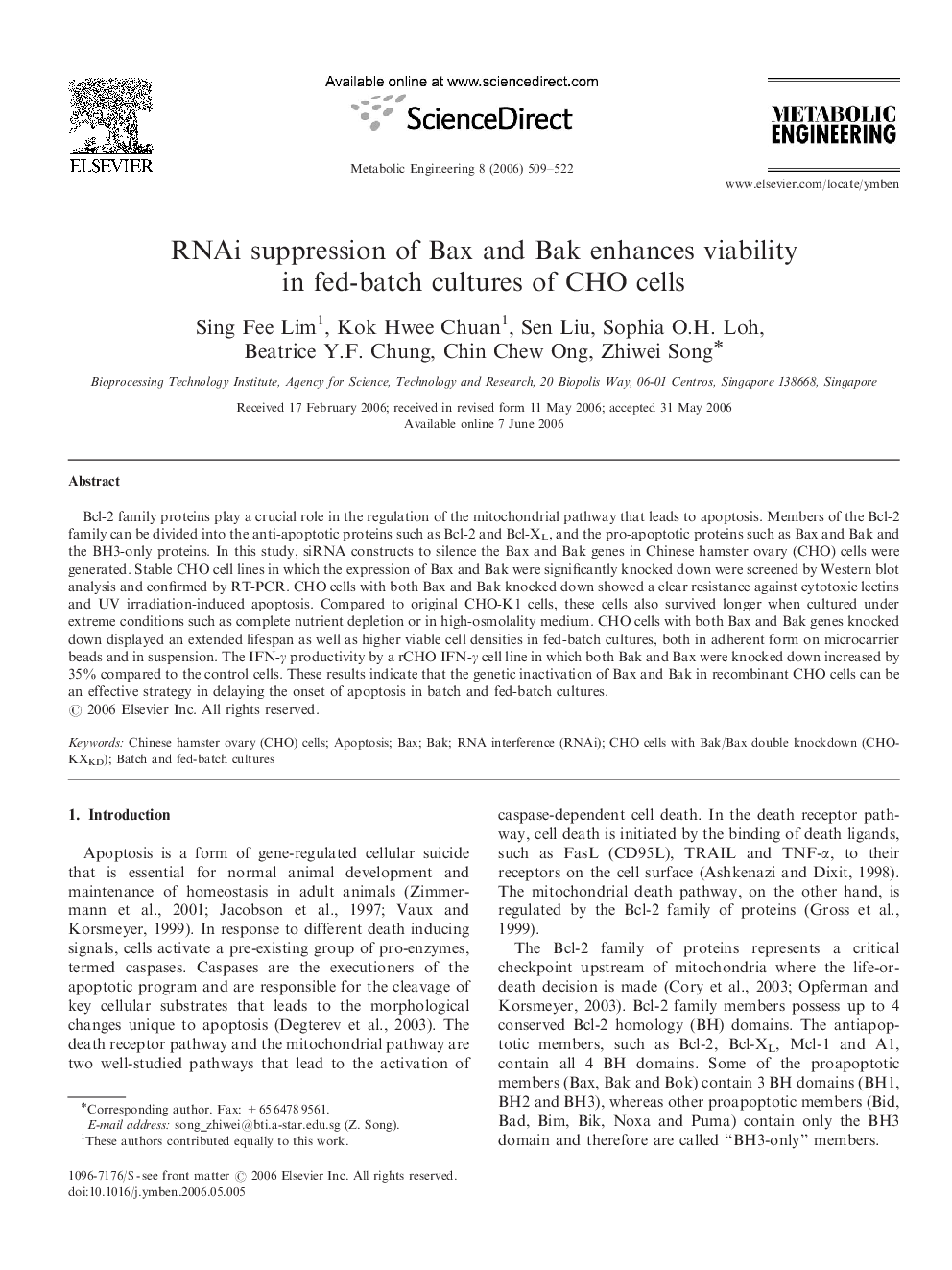| Article ID | Journal | Published Year | Pages | File Type |
|---|---|---|---|---|
| 31813 | Metabolic Engineering | 2006 | 14 Pages |
Bcl-2 family proteins play a crucial role in the regulation of the mitochondrial pathway that leads to apoptosis. Members of the Bcl-2 family can be divided into the anti-apoptotic proteins such as Bcl-2 and Bcl-XL, and the pro-apoptotic proteins such as Bax and Bak and the BH3-only proteins. In this study, siRNA constructs to silence the Bax and Bak genes in Chinese hamster ovary (CHO) cells were generated. Stable CHO cell lines in which the expression of Bax and Bak were significantly knocked down were screened by Western blot analysis and confirmed by RT-PCR. CHO cells with both Bax and Bak knocked down showed a clear resistance against cytotoxic lectins and UV irradiation-induced apoptosis. Compared to original CHO-K1 cells, these cells also survived longer when cultured under extreme conditions such as complete nutrient depletion or in high-osmolality medium. CHO cells with both Bax and Bak genes knocked down displayed an extended lifespan as well as higher viable cell densities in fed-batch cultures, both in adherent form on microcarrier beads and in suspension. The IFN-γ productivity by a rCHO IFN-γ cell line in which both Bak and Bax were knocked down increased by 35% compared to the control cells. These results indicate that the genetic inactivation of Bax and Bak in recombinant CHO cells can be an effective strategy in delaying the onset of apoptosis in batch and fed-batch cultures.
